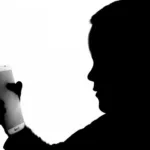It is not uncommon to experience pain in your lower back and is often caused by a herniated disc. However, back pain can result from many other issues, and it would be good to learn how to know when a herniated disc is the cause. It is a great way to know the steps to take, and it can help you seek the appropriate treatment. With the help of the Progressive Spine & Sports Medicine physicians Dr. Kevin McElroy, DO, and Steven Ferrer, MD, can identify common symptoms related to herniated discs to seek a highly successful treatment option in advance. Additionally, the following tips can help you.
Pay Attention to Your Pain
Several factors can cause pain in your lower back, although the herniated disc is one of the common causes. Therefore, you need to pay attention to your experience to differentiate between the possible causes. If you notice dull or sharp pain that improves over time, you might be suffering from a herniated disc. The pain may ease on your back but radiate to your leg. However, note that you might not experience any pain while suffering from a herniated disc, which often makes it difficult to diagnose the condition.
Understand Your Risk Factors
Anyone can suffer from a herniated disc, but some people are at an increased risk, more than others. Knowing your risk factors can help you understand better whether or not your symptoms are associated with a herniated disc. Some common risk factors for herniated disc include overweight or obesity, smoking, driving, sedentary lifestyle, physically demanding jobs, and ages between 30 and 50.
Check for Weakness, Tingling, or Numbness
If you experience weakness, numbness, or tingling on your leg and foot, you might be enduring a herniated disc. The condition can affect the sciatic nerve on your spine, which may cause effects on your leg or foot. This mainly occurs immediately after you injure your back and may worsen over time if left unmanaged.
Consult Your Doctor If You Experience Bowel or Bladder Control Issues
Sometimes herniation can affect the nerves on your back responsible for controlling your bladder or bowel movements. Therefore, pay attention and contact your doctor as soon as possible when this happens to help alleviate your symptoms.
Look Into Your Medical History
If you experience lower back pain, your medical history can provide adequate information to diagnose a herniated disc. You might be suffering from other known complications which your doctor can rule out or link to your symptoms. Therefore, make a list of all the complications you might be enduring or have experienced in the past. Also, include your family history as you are at higher risks of experiencing the condition. Ensure you provide accurate information to your provider.
Consult Your Doctor About Exams
A physical exam on your back and a neurological exam can help you understand the cause of your lower back pain. Your doctor can feel your spine to pinpoint the exact painful spots and might ask you to move your legs around to get a better idea of the pain’s location and its magnitude.
A herniated disc can make it difficult for your nerves to communicate normally, and this may lead to your provider recommending a neurological exam to check how your reflexes are working.
Reach out to Progressive Spine & Sports Medicine today if you experience lower back pain for herniated disc diagnosis. Your provider will take you through the process and help you understand all the symptoms you might be experiencing and why.








